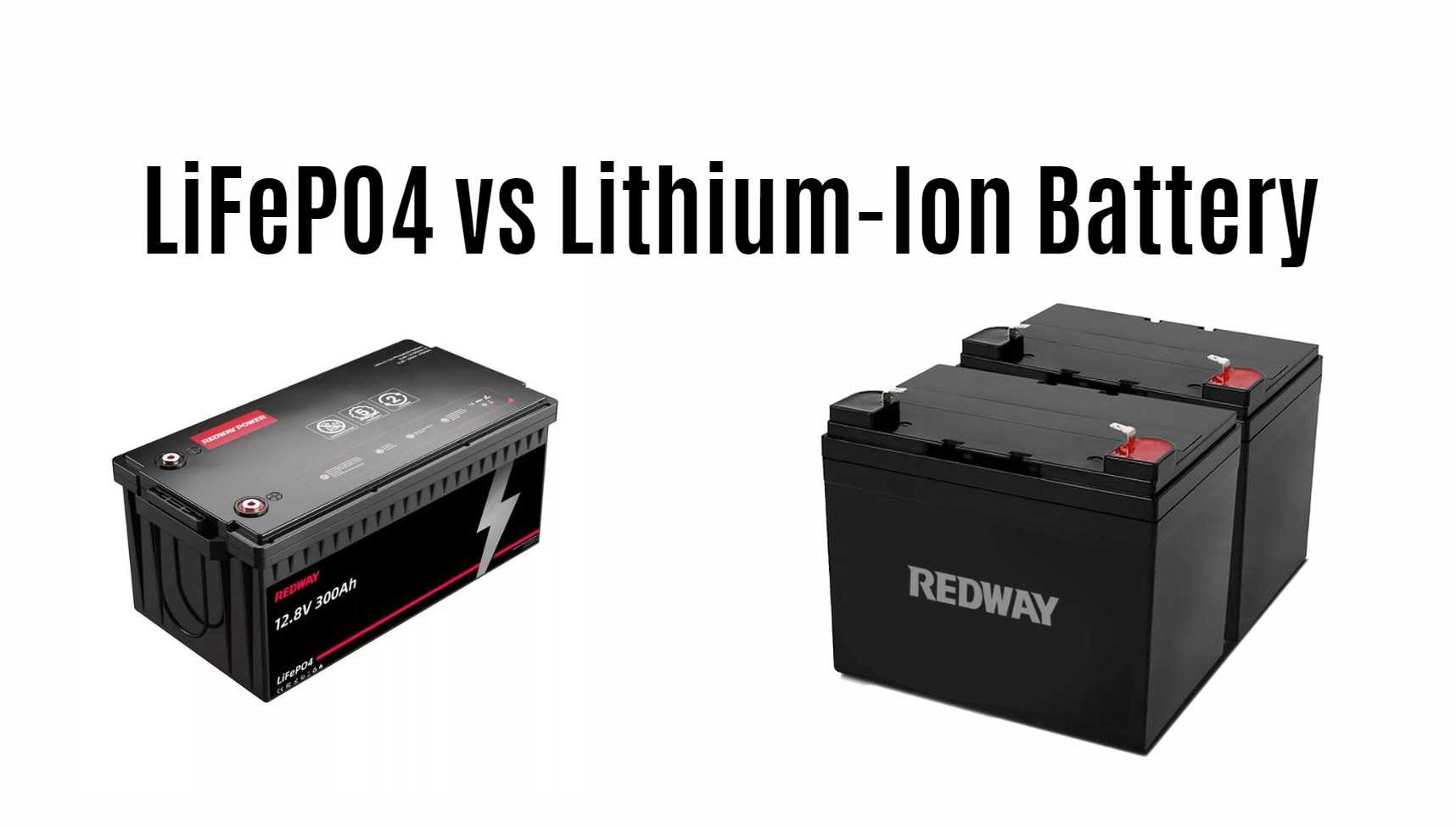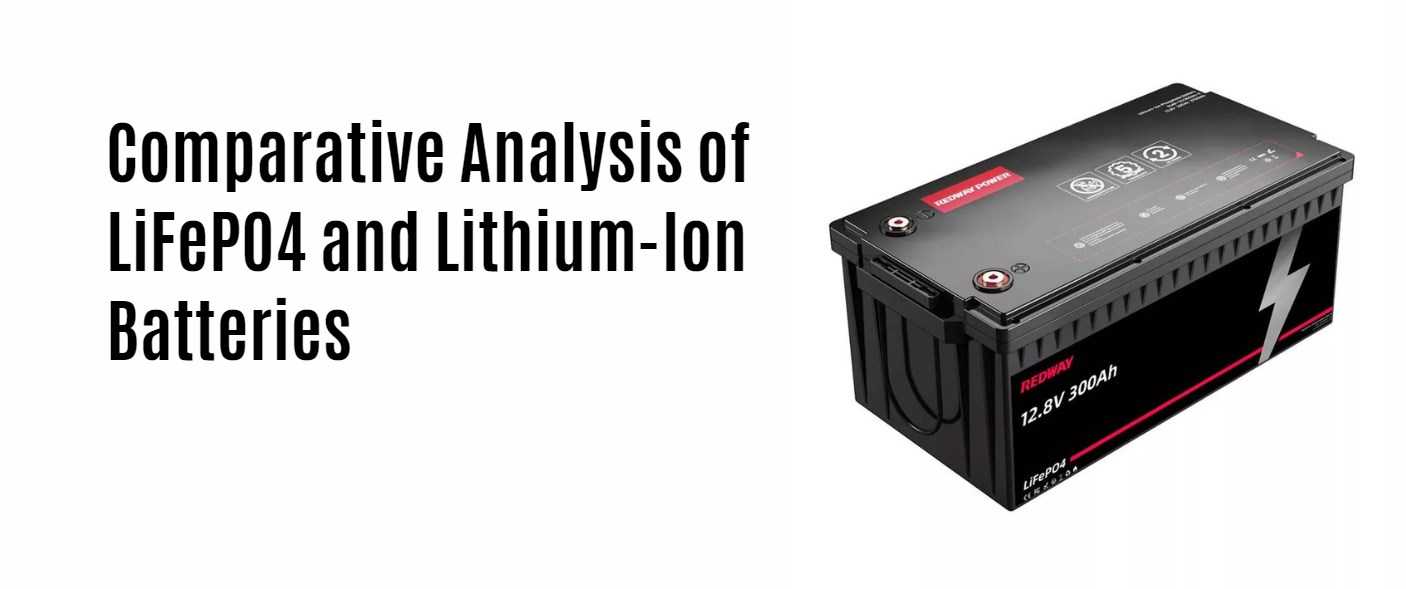At Redway Battery, we are dedicated to exploring the intricacies of battery technology to assist you in making educated decisions. In this comprehensive guide, we pit two powerhouses of energy storage against each other: LiFePO4 (Lithium Iron Phosphate) and Lithium-Ion batteries. Both are celebrated for their efficiency and longevity, yet each stands out in different areas. Join us as we explore the subtleties that could influence your next power solution.
Introduction to LiFePO4 and Lithium-Ion Batteries
In the field of battery technology, LiFePO4 and Lithium-Ion batteries are recognized for their exceptional performance and adaptability. LiFePO4, known for its stability and safety, offers a longer lifespan compared to the more common Lithium-Ion batteries. Conversely, Lithium-Ion batteries are lauded for their lightweight design and high energy density, making them suitable for a wide range of portable applications.
Comparative Analysis of LiFePO4 and Lithium-Ion Batteries
Advantages of LiFePO4 Batteries
LiFePO4 batteries present several compelling benefits that make them ideal for certain applications:
Wholesale lithium golf cart batteries with 10-year life? Check here.
- Extended Lifespan: With a lifespan up to ten times longer than that of typical Lithium-Ion batteries, LiFePO4 batteries represent a cost-effective investment in the long term.
- Enhanced Safety: They carry a lower risk of overheating and fire, providing reassurance in safety-critical applications.
- Stable Voltage: They maintain a stable voltage throughout discharge cycles, ensuring consistent performance.
Disadvantages of LiFePO4 Batteries
While LiFePO4 batteries excel in longevity and safety, there are trade-offs:
- Weight: They are generally heavier due to their construction, which can limit their use in lightweight and portable devices.
- Cost: Their initial cost is higher compared to Lithium-Ion batteries, requiring a careful evaluation of long-term benefits versus upfront investment.
Advantages and Disadvantages of Lithium-Ion Batteries
Lithium-Ion batteries, being more widespread, offer clear benefits and drawbacks:
Want OEM lithium forklift batteries at wholesale prices? Check here.
- Advantages: Their lightweight design and lower initial cost make them an attractive option for consumer electronics and portable devices.
- Disadvantages: A shorter lifespan and a higher risk of overheating compared to LiFePO4 batteries require careful consideration for safety-critical applications.
Environmental Impact
LiFePO4 Batteries
- Free from harmful materials like lead or cadmium, LiFePO4 batteries are more environmentally friendly and can be recycled efficiently, reducing their ecological impact.
Lithium-Ion Batteries
- Containing cobalt, Lithium-Ion batteries present recycling challenges due to their chemical composition and are linked to higher pollution levels during manufacturing.
Conclusion
The decision between LiFePO4 and Lithium-Ion batteries depends on the specific needs of your application. If longevity, stability, and safety are your top priorities, LiFePO4 is the preferred choice, even with its higher initial costs. On the other hand, for applications that value affordability and lightweight design, Lithium-Ion remains an attractive option. At Redway Battery, we are here to help you find the optimal battery solution that fits your unique requirements. For expert advice and guidance, please feel free to contact us.








